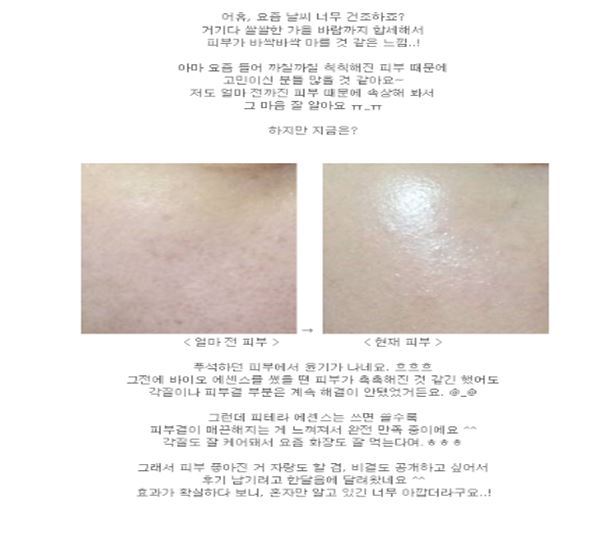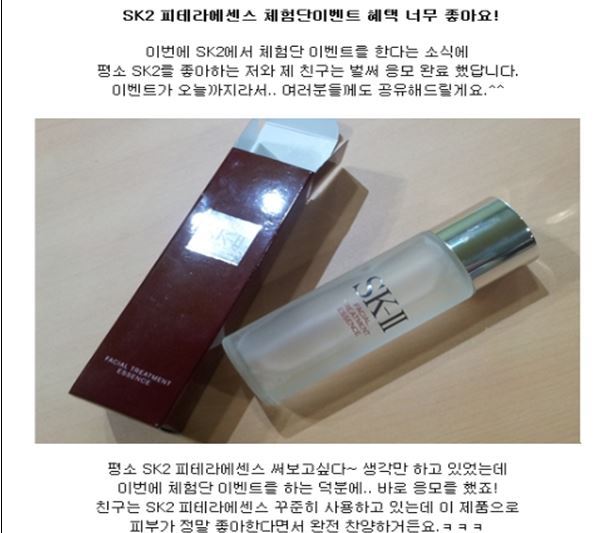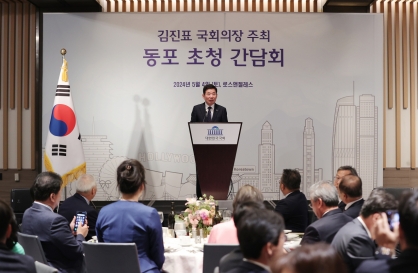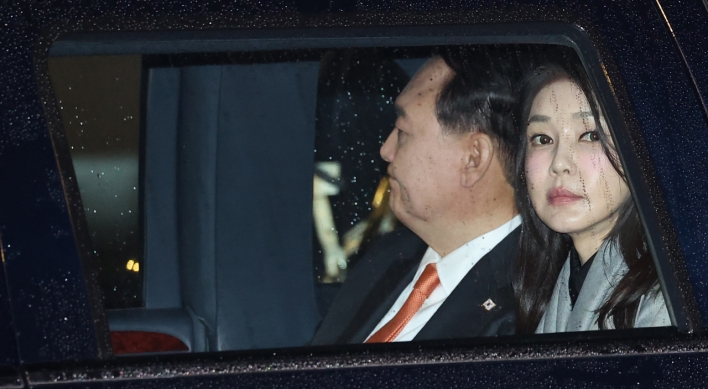

Alert to Web surfers searching for shopping tips: Product reviews you read may not always be genuine.
The Fair Trade Commission on Tuesday fined Proctor & Gamble Korea ― the local distributor of cosmetics brand SK-II and household goods Febreze, Gillette, Oral-B, Whisper and Downy ― 108 million won ($100,000) for deceptive advertising.
According to the antitrust watchdog, P&G violated a law requiring all online advertorials ― advertisements released in the form of editorial content ― to be clarified as paid articles. The paid writers are required to insert the guideline phrase, “I have been paid to post this article,” at the end of their online advertorials in a larger font or in a different color.
The investigation result notes that P&G had paid 8.25 million won between July and September 2013 to advertising agents who hired Internet users to post favorable reviews about cosmetic brand SK-II.
A total of 800 articles were uploaded on more than 231 online beauty communities in the form of peer testimonials, alongside another 116 recommendation articles posted on www.naver.com’s Q&A section about summer skin care items. However, none of them mentioned that the articles were sponsored.
“Clarifying the business relations between advertisers and paid writers in viral ads is very important because this could influence consumer behavior. Ordinary consumers tend to believe that testimonials are genuine experiences shared by peer consumers and trust their recommendations more than advertisements,” said Oh Haeng-rok, an FTC official.
P&G Korea said the company ceased this marketing strategy in 2014, but evaded the fine because the number of articles caught was so high, the authorities said.
This is the latest state crackdown on astute advertorial marketing.
On Nov. 13, the Seoul High Court convicted local coffee shop franchise Caffe Bene for paying bloggers for un-notified advertorials. Earlier this year, Boryung Pharm and Sony Korea were also fined for similar activities.
Tightened regulation on advertorials and paid-for postings were adopted in 2014 after “power bloggers,” who have legions of fans emulating their lifestyles, including shopping, were indicted in 2011 for posting misleading articles.
They were paid up to 5 million won per article and took tens of millions of won as commissions for arranging group shopping without notifying the blog readers and shoppers of their profits. The consumers filed complaints against the bloggers for deception and canceled the purchase, causing a stir.
Business insiders claim that the market has become transparent.
According to research by the Korea Blog Business Association in October 2014, about 80 percent of 1,460 surveyed writers followed the rules. “It is a difficult moment for the bloggers and advertisers but we too share understanding that this will prevent consumers being misled by advertorials,” Jang Dae-gyu, head of the KBBA, stated.
The FTC suggested the consumers take extra care when reading online shopping tips.
“If you find similar photographs or similar expressions about a certain product in a number of online articles, you may well suspect that the writers were paid for advertising,” FTC official Oh said.
By Bae Ji-sook (baejisook@heraldcorp.com)
-
Articles by Korea Herald



![[AtoZ Korean Mind] Does your job define who you are? Should it?](http://res.heraldm.com/phpwas/restmb_idxmake.php?idx=644&simg=/content/image/2024/05/06/20240506050099_0.jpg&u=)















![[K-pop's dilemma] Is Hybe-Ador conflict a case of growing pains?](http://res.heraldm.com/phpwas/restmb_idxmake.php?idx=642&simg=/content/image/2024/05/07/20240507050746_0.jpg&u=)